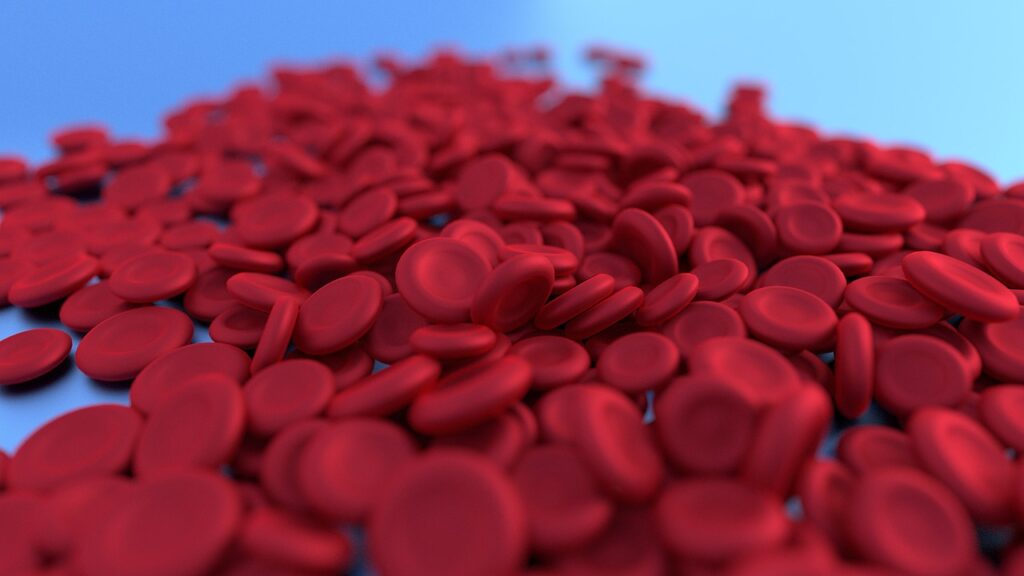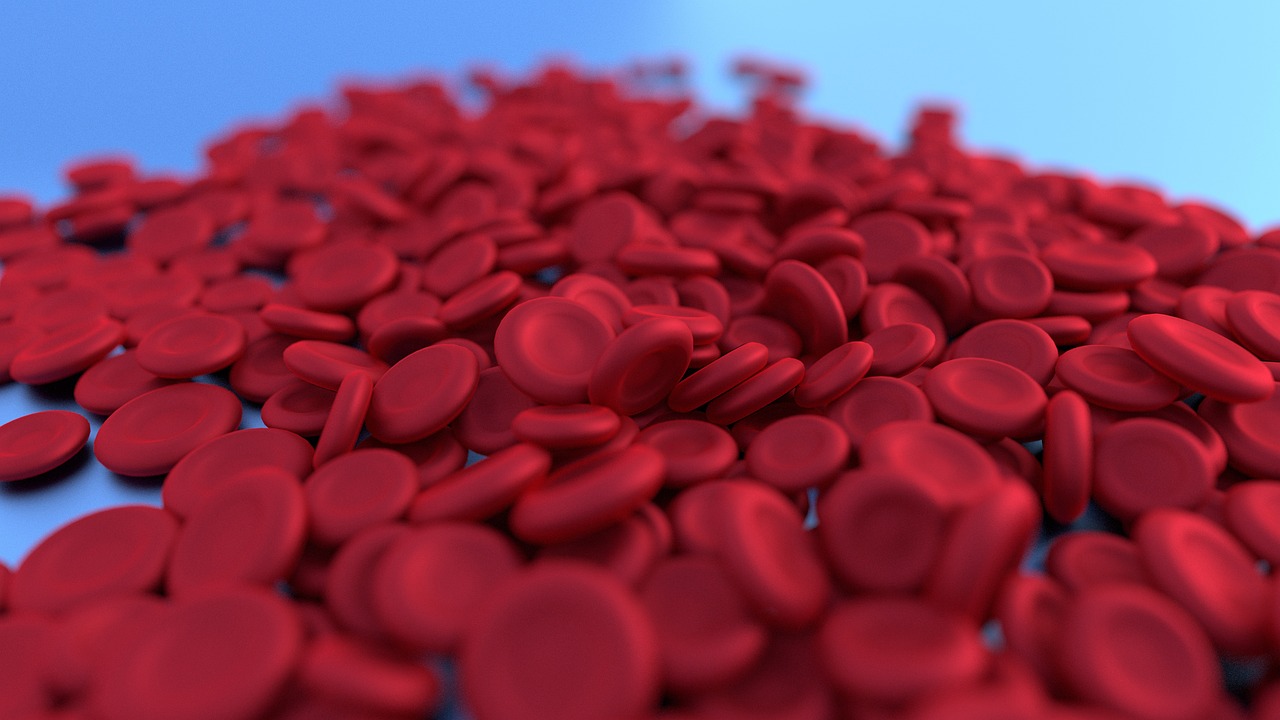Are you aware of the potential link between bed bugs and anemia?
These blood-sucking creatures, known as bed bugs (Cimex lectularius), have long been a nuisance to humans, but their impact on our health extends further than just itchy bites. In recent years, there has been growing concern regarding the role of bed bugs in anemia, a condition characterized by a deficiency in red blood cells or hemoglobin.
Bed bugs are hematophagous insects, meaning they feed exclusively on blood. While their primary hosts are typically humans, they are also known to infest other mammals, such as dogs and cats. Their need for blood is not simply for sustenance, but also for reproduction and survival.
As bed bugs feed, they pierce the skin and inject saliva into the wound, which contains anticoagulant properties to prevent blood clotting. It is through this feeding process that bed bugs can potentially contribute to anemia.
The repeated blood loss from their bites can lead to a gradual decrease in red blood cell count and hemoglobin levels in infested individuals. This can result in symptoms such as fatigue, weakness, and shortness of breath, all characteristic of anemia.
Understanding the mechanisms of bed bug blood feeding is crucial in addressing this health concern. By unraveling the complexities of their feeding habits, scientists can explore potential interventions and preventive measures to mitigate the risk of anemia associated with bed bug infestations.
In this article, we will delve into the fascinating world of hematophagy and explore the link between bed bug infestations and anemia. We will examine the physiological processes behind bed bugs’ blood feeding and delve into the health implications of bed bug-related anemia. Additionally, we will discuss strategies for preventing and treating bed bug infestations, keeping public health at the forefront.
So, join us as we uncover the role of bed bugs in anemia and work towards effective solutions for this pressing issue.
Hematophagy: Exploring the Feeding Habits of Bed Bugs
You’re probably wondering how bed bugs manage to feed on blood and if it has any impact on their role in anemia. Well, let’s dive into the world of hematophagy, the feeding habits of bed bugs.
Bed bugs are hematophagous insects, meaning they rely on blood as their primary source of nutrition. They possess specialized mouthparts called stylets, which they use to pierce the skin and extract blood from their hosts. These stylets consist of a pair of mandibles and maxillae, along with a hypopharynx that injects saliva into the bite site.
The saliva contains anticoagulant compounds that prevent the blood from clotting, allowing the bed bug to feed uninterrupted. The feeding process generally lasts for about 5-10 minutes, during which time the bed bug engorges itself with blood, increasing in size and weight.
Understanding the feeding habits of bed bugs is essential in comprehending their potential role in anemia.
The Link Between Bed Bug Infestations and Anemia
Feeling fatigued and weak? Maybe it’s time to consider the unexpected impact that these blood-sucking pests can have on your health.
Bed bug infestations have been found to be linked to anemia, a condition characterized by a decrease in red blood cells or hemoglobin. When bed bugs feed on human blood, they extract a small amount of it, but over time, repeated bites can lead to significant blood loss.
This blood loss, especially in individuals already at risk for anemia, can exacerbate the condition and further contribute to symptoms such as fatigue, weakness, and shortness of breath. Furthermore, the constant itching and scratching caused by bed bug bites can lead to skin infections, which can further complicate anemia.
Therefore, it is important to address bed bug infestations promptly to prevent the potential health consequences associated with anemia.
Understanding the Mechanisms of Bed Bug Blood Feeding
Curious about how these tiny pests extract blood from their human hosts? Let’s explore the fascinating mechanisms behind bed bug blood feeding.
Bed bugs have evolved specialized mouthparts that enable them to pierce the skin and feed on blood. When a bed bug finds a suitable feeding spot, it inserts its sharp stylet into the skin and locates a blood vessel.
The stylet consists of two tubes: one tube injects saliva into the host’s skin, while the other tube sucks up the blood. The saliva contains anesthetics and anticoagulants, which prevent the host from feeling the bite and ensure that the blood flows freely.
Bed bugs can feed for several minutes, consuming up to five times their body weight in blood. Once engorged, they retreat to their hiding places to digest and process the blood meal.
Understanding these intricate feeding mechanisms is crucial in developing effective strategies for bed bug control and mitigating the risk of anemia.
The Health Implications of Bed Bug-Related Anemia
The health implications of anemia caused by bed bug bites can be significant, as it can lead to fatigue and weakness due to a decrease in red blood cell count. When bed bugs feed on human blood, they inject saliva into the skin, which contains anticoagulant properties that prevent blood from clotting. This allows the bed bugs to feed uninterrupted for extended periods.
However, repeated bed bug bites can result in significant blood loss, causing a decrease in the number of red blood cells, known as anemia. Anemia can lead to a variety of symptoms, including fatigue, weakness, and shortness of breath. In severe cases, it can also affect cognitive function and impair the body’s ability to heal wounds.
Therefore, it is important to address and treat bed bug infestations promptly to prevent the development of anemia and its associated health consequences.
Preventing and Treating Bed Bug Infestations for Public Health
To effectively protect yourself and your loved ones from potential health risks, it’s crucial to take proactive measures in preventing and addressing bed bug infestations.

Bed bugs are small, nocturnal insects that feed on human blood, causing itchy bites, allergic reactions, and in some cases, anemia.
To prevent infestations, it’s important to regularly inspect and clean your living spaces, including mattresses, furniture, and clothing. Vacuuming regularly and using mattress encasements can also help eliminate bed bugs and their eggs.
If you suspect an infestation, it’s recommended to consult with a professional pest control service for effective treatment. These professionals can use heat treatments, insecticides, and other methods to eradicate bed bugs and prevent their return.
By being proactive and addressing bed bug infestations promptly, you can help protect your health and well-being.
Frequently Asked Questions
How do bed bugs find their human hosts?
Bed bugs locate their human hosts through a combination of factors. They are attracted to body heat, carbon dioxide, and certain chemicals emitted by humans. This helps them find and feed on their preferred blood meal.
Can bed bug infestations lead to other health issues besides anemia?
Bed bug infestations can lead to a range of health issues besides anemia. They can cause allergic reactions, skin infections, and mental health problems like anxiety and insomnia. Prompt treatment is crucial to prevent these complications.
What are the signs and symptoms of bed bug-related anemia?
Signs and symptoms of bed bug-related anemia include fatigue, weakness, pale skin, shortness of breath, and rapid heart rate. These occur when bed bugs feed on blood, leading to a decrease in red blood cells and oxygen-carrying capacity.
Are there any long-term consequences of bed bug-related anemia?
Long-term consequences of bed bug-related anemia can include chronic fatigue, weakness, and decreased cognitive function. Without proper treatment, anemia can lead to organ damage, impaired growth in children, and increased susceptibility to infections.
What are the most effective methods for preventing bed bug infestations in homes?
To prevent bed bug infestations in homes, you should regularly inspect mattresses, furniture, and linens for signs of bed bugs. Vacuuming regularly, sealing cracks and crevices, and using bed bug-proof mattress covers can also be effective preventive measures.
Conclusion
In conclusion, the role of bed bugs in anemia is a significant concern in public health. Through their hematophagy feeding habits, bed bugs can cause anemia by depleting the blood supply of their human hosts. Understanding the mechanisms of bed bug blood feeding is crucial in developing effective prevention and treatment strategies.
The health implications of bed bug-related anemia cannot be overlooked, and it’s essential to raise awareness about this issue. By implementing measures to prevent and treat bed bug infestations, we can mitigate the risk of anemia and promote overall public health.










